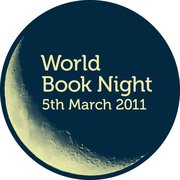The best of British
I've just finished reading Billy Bragg's The Progressive Patriot. I've enjoyed it on a number of levels. The way he writes is much as he speaks, and it's been a joy to hear his voice as I've read his words.
The question the book is addressing is one of identity and meaning for progressive british society. In the wake of a rise in support for racist political parties and with much discomfort, misunderstanding and confusion of what it might mean to be a multicultural society, is there anything that people in progressive politics might want to cling on to or even celebrate in a distinctively british identity?
Bragg argues that a renewed discussion of britishness might be a uniting rather than dividing exercise, that it might rob the racists of a platform by revealing that to be british has always meant to be tolerant and open to other cultures.
He writes a persuasive book, I commend it to you.
It seemed to me, in reading it, to have something to say to those of us who are engaged in discovering fresh understandings of what it means to follow Jesus. Bragg advocates that british people tell the long story about ourselves, a story that includes a great history of integration, that is honest about not just the glories of empire, but the negatives too, a story that indicates a constant state of change, not some static population. I wonder if the most contemporary of emerging churches also need to retell the story from the beginning, to show how what we do, as connected as it is to our mediated, accelerated, po-mo world, is also connected to the roots and history of all who've borne the name of Christ?
There's a large part of me that wants to ignore 2,000 years of church history because it often feels like a weight, an albatross maybe, around the Church's neck. Maybe it's in retelling with honesty the story of our faith that we might find a new willingness from those seeking a tale to believe in, a path to follow.
The question the book is addressing is one of identity and meaning for progressive british society. In the wake of a rise in support for racist political parties and with much discomfort, misunderstanding and confusion of what it might mean to be a multicultural society, is there anything that people in progressive politics might want to cling on to or even celebrate in a distinctively british identity?
Bragg argues that a renewed discussion of britishness might be a uniting rather than dividing exercise, that it might rob the racists of a platform by revealing that to be british has always meant to be tolerant and open to other cultures.
He writes a persuasive book, I commend it to you.
It seemed to me, in reading it, to have something to say to those of us who are engaged in discovering fresh understandings of what it means to follow Jesus. Bragg advocates that british people tell the long story about ourselves, a story that includes a great history of integration, that is honest about not just the glories of empire, but the negatives too, a story that indicates a constant state of change, not some static population. I wonder if the most contemporary of emerging churches also need to retell the story from the beginning, to show how what we do, as connected as it is to our mediated, accelerated, po-mo world, is also connected to the roots and history of all who've borne the name of Christ?
There's a large part of me that wants to ignore 2,000 years of church history because it often feels like a weight, an albatross maybe, around the Church's neck. Maybe it's in retelling with honesty the story of our faith that we might find a new willingness from those seeking a tale to believe in, a path to follow.

Comments